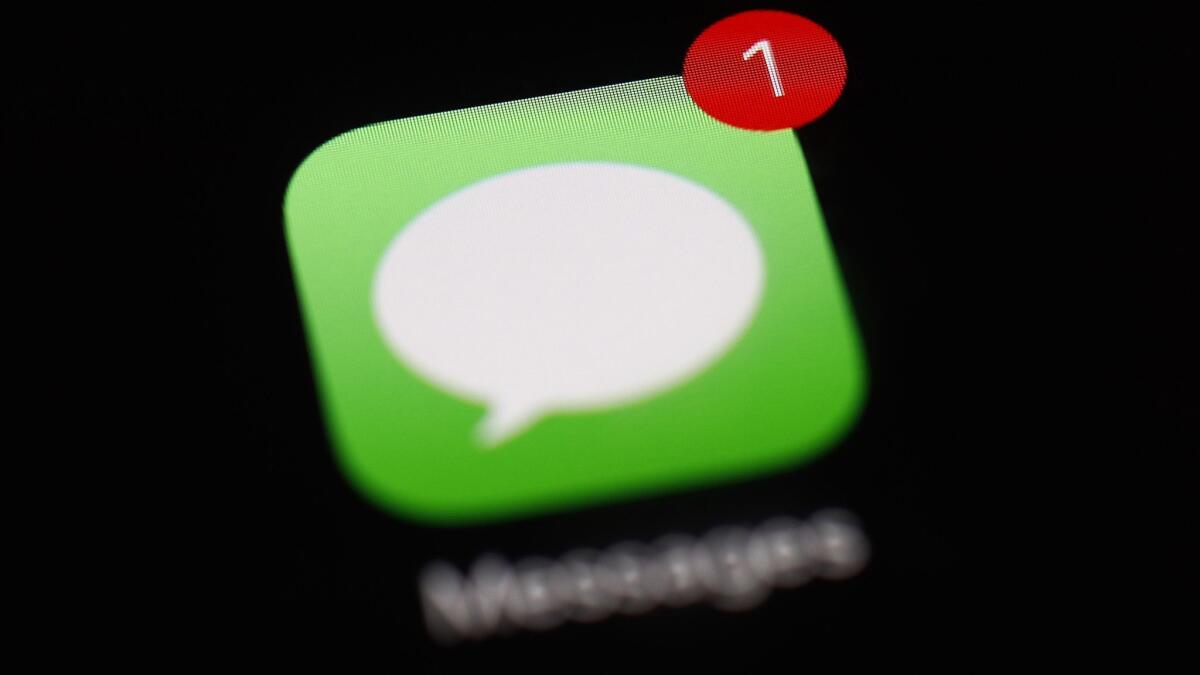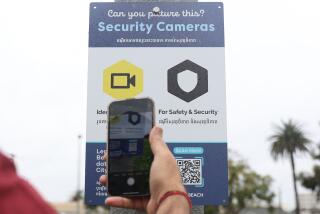Long Beach police suspend use of app that deletes communications amid concerns about hiding evidence

The Long Beach Police Department has suspended its use of a mobile texting application that permanently erases messages after civil liberties advocates and media outlets raised concerns that the app could be used to hide evidence useful to the other side in criminal and civil court cases.
In a statement, the city said the decision to halt the use of TigerText came “pending further review of whether the use is consistent with the city’s record retention policy and administrative regulations for the use of mobile devices.”
Civil liberties advocates had warned that the app could be used to delete communications that could be requested during the discovery process in court cases.
Records show the department began using the application in June of 2014, when Los Angeles County Sheriff Jim McDonnell was still running the agency.
In an interview Wednesday, McDonnell said the program was adopted at a time when the Police Department was trying to find a replacement for its BlackBerry phones and wanted an encrypted messaging system to use in criminal investigations. McDonnell said he was not aware that the application did not retain messages and he believed the application had been fully vetted by the city.
“Sometimes with emerging technologies we fail to recognize all the ramifications,” McDonnell said. He said he wouldn’t make the same choice of application again.
The city moved to discontinue the app after a report in Al Jazeera on Tuesday in which two officers said they were instructed by superiors to use the app to “have conversations with other officers that wouldn’t be discoverable.” Long Beach Police Chief Robert Luna denied those allegations.
A city document provided to The Times by the American Civil Liberties Union of Southern California describes the app as a “secure messaging platform for criminal investigations and confidential communication.” The document shows that each yearlong license costs $96. With the app implemented on more than 100 phones, it cost the city more than $10,000 per year to use, records show.
According to the city, the TigerText application is installed on 145 of the 291 cellphones issued by the department. That includes the phones of the command staff, as well as homicide and internal affairs investigators. The law enforcement agency employs 1,214 workers and has used the app since 2014.The app deletes messages five days after they are sent, according to Luna.
Mohammad Tajsar, a staff attorney at the ACLU of Southern California, said it appears as though Long Beach is circumventing a California law that requires cities to preserve records for two years. He called on the department, along with the Los Angeles County district attorney’s office, to investigate the use of the app.
“It might potentially throw into doubt the validity of a whole host of cases,” Tajsar said. “You have the prospect of destroyed evidence in a whole bunch of cases.… It’s very important, in fact critical, that the city conduct a thorough investigation into the use of TigerText — how its officers communicated using it, what they communicated and the impact of those communications on prior cases.”
In conjunction with Al Jazeera’s reporters, Tajsar said the ACLU filed public records requests concerning the use of TigerText with 36 police departments in California. Long Beach police were the only agency they found to be using the application. Other large agencies, including the Los Angeles, San Diego and Sacramento police departments and the Los Angeles County Sheriff’s Department, do not use the app, he said.
Tajsar was particularly concerned that the app was being used by Long Beach homicide investigators. If those investigators were using the app to discuss an officer-involved shooting, for example, Tajsar said their opinions would have been subject to discovery in a civil lawsuit.
“If the detectives use it to talk at all about what they find, their opinions about what they find, people that they find more credible than other people, that’s all incredibly important information in discovery,” he said.
Tajsar said if all the department wanted was a secure method of communication, there were better options. Apps like Signal, Peerio and even Apple’s default iMessage system are all considered to be more secure than TigerText, he said. Luna said he also plans to review how the department vetted TigerText’s encryption compared with other applications.
During an interview Wednesday, the chief said officers document any information that would be subject to criminal or civil discovery in police reports.
“From a standard and policy perspective there was no malice here, there was no intent to do anything wrong,” Luna said.
Luna also said the app will cause a phone to repeatedly send out an alarm until a message is answered, something that is critical for when commanders need to contact one another during a high-profile incident at odd hours.
The app is billed on its website as a messaging solution for healthcare providers that is secure and compliant with federal patient privacy rules, with messages that automatically delete after a set amount of time. Its parent company, TigerConnect, launched seven years ago and has more than 3,000 clients. It’s unclear how many more clients, if any, are law enforcement agencies.
Calls to the company’s offices in Santa Monica were not returned on Wednesday.
The department plans to release more information about which officers and commanders were using the app, including their ranks and assignments, Luna said. Though he asserted that the department was not trying to hide anything, he said he understood how the agency’s use of the app might look.
“I know people are concerned about it,” he said. “We’re very concerned about it.”
Times staff writer Maya Lau contributed to this report
UPDATES:
8:30 p.m., Sept. 20: This article was updated with comments from Los Angeles County Sheriff Jim McDonnell about the use of the application when he was police chief in Long Beach.
1:30 p.m., Sept. 19: This article was updated with additional background about the Long Beach Police Department’s use of the application.
This article was originally published at 10:50 p.m. Sept. 18.
More to Read
Sign up for Essential California
The most important California stories and recommendations in your inbox every morning.
You may occasionally receive promotional content from the Los Angeles Times.












